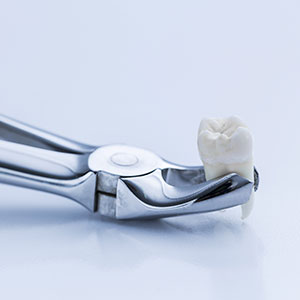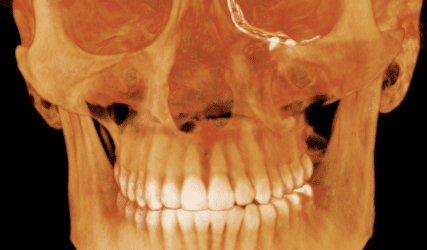Dental Implants
What Are Dental Implants? | Dentures & Dental Implants in Erie, Pa.
The experienced team members at Armanini, Kolodychak, & Basile, L.L.P. are experts when it comes to placing dental implants. Implant-supported replacement teeth are similarly structured to natural teeth, with a crown to chew food and a root that anchors the tooth to the jaw through the gum. Dental implants are made of titanium, a material that has been utilized for its strength by surgeons for decades. Bone fuses to titanium which is what makes implants so successful. During a dental implant procedure, the surgeon starts by placing a dental implant where the root would be. Once natural bone heals around the dental implant, a support post known as a final abutment is placed on top of the implant, then the final piece of the replacement tooth — the crown — being placed on top of that. We offer a multitude of treatment options to those who are missing multiple, or even all, of their natural teeth.
The Benefits of Dental Implants
There are numerous benefits of having dental implants placed at Armanini, Kolodychak, & Basile, L.L.P.. Missing teeth can affect the way we eat and speak; they can also cause strain on your remaining teeth, causing them to wear out prematurely. In fact, people are capable of losing upwards of 25% of their supporting jawbone structure within one year of losing a tooth or teeth. That’s a part of what makes considering dental implants so crucial prior to, or immediately following, the loss of a tooth or teeth. With time, it becomes more challenging to place implants due to possible bone atrophy or resorption. Fortunately, dental implants act just like natural teeth, preserving both your bone structure and oral health.
We offer long-lasting implant options to those considering tooth replacement. We recommend you schedule a consultation with us to discuss your specific options. During your visit, we will be able to help you choose the best tooth replacement option for you.

About Dental Implant Procedures
The number of appointments and time required is going to vary depending on the patient and the details of their treatment plan. This will be determined at the consultation. During the procedure, the surgeon will make a small incision in the gum tissue where the titanium implant will be inserted.
Healing time will also vary from person to person, but your surgeon will be able to advise you on follow-up care and timing. They will schedule a follow-up visit in order to place an abutment or healing cap onto the implant, allowing access to it as your gum tissue continues to heal. Most patients will require between one and four appointments with our Practice to ensure their mouth is healing properly. Once ready, your General Dentist will complete the procedure by fitting a crown to your implant.

Upper and Lower Dentures & Individual Tooth Implants in Erie, Pa.
Drs. Armanini, Kolodychak, and Basile, can work with your General Dentist to offer a variety of implant-supported replacement options for those missing their lower teeth, including:
- Ball Attachment Denture
- Bar Attachment Denture
- Screw Retained Denture
- Individual Implants
A similar range of replacement options are also available for those missing their upper teeth. For some patients, it may be possible to eliminate the need for a complete denture, allowing you to taste and perceive food temperature easier. Contact Erie Oral Surgery today to discuss what an Implant Retained Upper Denture or Individual Upper Implants could do for you.

Recovering From Dental Implant Surgery
Drs. Armanini, Kolodychak, and Basile, are proud to note that dental implants show a particularly high success rate — 80 to 90 percent for those missing all of their teeth, and over 90 percent for those missing one or several teeth. Although rare, there is always the possibility of a post-operative complication, such as infection, bone loss, and loss of osseointegration . In the case that it needs to be removed, many patients are candidates for placement of another implant after adequate healing has taken place.
Most patients do not experience significant post-operative discomfort. Patients can expect antibiotics and home care instructions to guide them throughout the recovery process. Occasionally, even with the greatest care taken to place the implant precisely, it is possible to develop a post-operative complication. If you have any questions after your surgery, please do not hesitate to contact our Practice at your earliest convenience.

News & Articles

